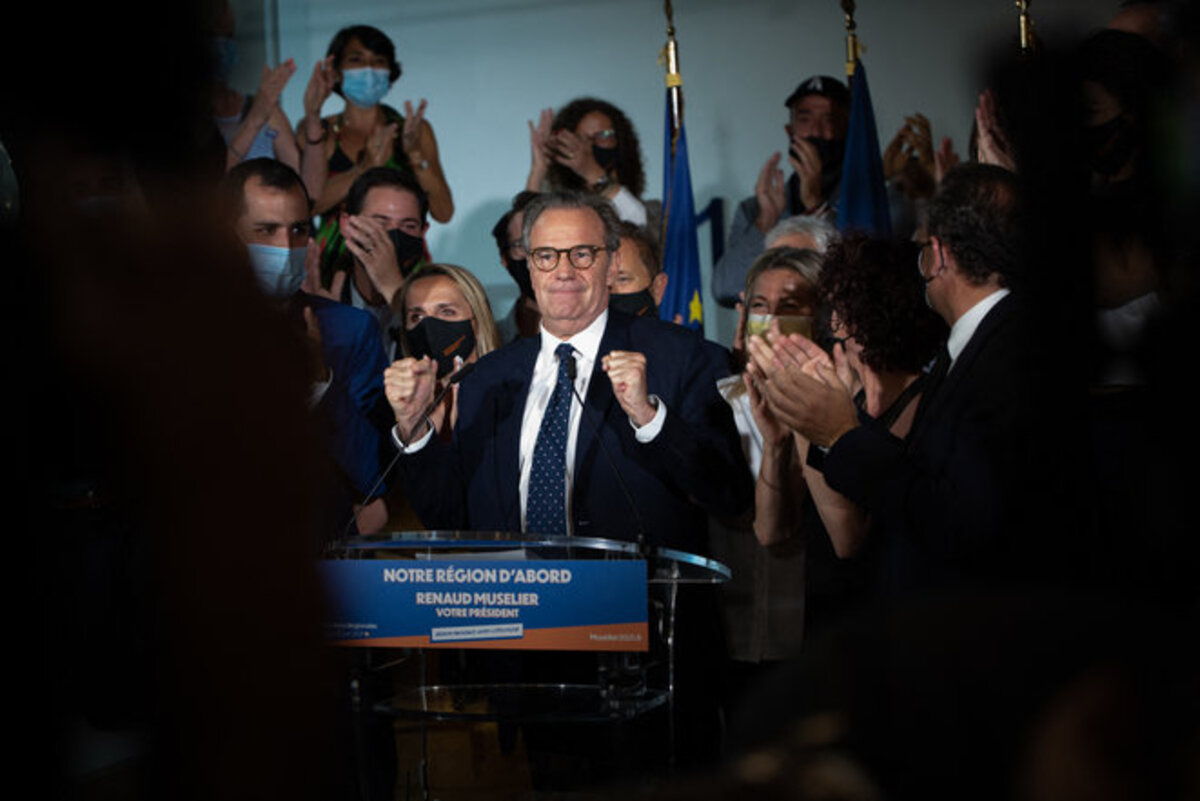Elections for control of France’s regional councils, representing the last nationwide voting before next year’s presidential and legislative polls, have ended with relative victories for the traditional parties of the Right and Left, which largely held on to their existing majorities, and resounding defeats for the far-right Rassemblement National and President Emmanuel Macron’s ruling LREM party.
After the final voting on Sunday in the two-round elections, held one week apart, seven of the 13 regions in mainland France were won by the mainstream Right, while five were taken by the Left. But the elections were marked by a significant low turnout, representing around 34% across the country, just two points up on the record low turnout on June 20th, and despite the potential upsets for control of three of the regional councils.
The Rassemblement National (RN), the former Front National, had been notably hoping to take control of the south-east Provence-Alpes-Côte d’Azur (PACA) region, which was finally won by the conservative candidate Renaud Muselier, with 57.3% of votes cast. While the battle between Muselier and his far-right rival, the conservative renegade Thierry Mariani, had focalised political attention at a national level, the turnout increased by just one percentage point on the previous Sunday.

Enlargement : Illustration 1

In the Greater Paris region of Île-de-France, where turnout this Sunday was 32%, one of the lowest in the country, the conservatives, led by presidential hopeful Valérie Pécresse, won by a large margin against a coalition of Greens, socialists and the radical-left La France Insoumise (LFI) party. The latter mobilised much the same numbers of voters as during the first round.
In reality, the abstention rate was such that Pécresse, who was returned as president of the region which she and her allies of the Right and centre-right have controlled since 2015, garnered the support of less than 15% of the electorate. Similarly, Xavier Bertrand, her principal rival as future presidential candidate for the mainstream Right – both are breakaway conservatives who left the Républicains (LR) party fold but remain closely allied to it – was returned as council leader in the northern Hauts-de-France region with the support of just 17% of the total electorate. But despite that, Bertrand was upbeat on Sunday: “This result gives me the force to go out to meet all of the French people,” he said, referring to his presidential ambitions.
In terms of the share of votes cast, Pécresse, 53, won comfortably with 45.92%, while the coalition of Greens, socialists and the LFI garnered 33.68%. The far-right RN party came in third place with 10.79% and the LREM party trailed with 9.62%. In the Hauts-de-France region, the conservative LR party list led by Xavier Bertrand, 56, won a 52.37% share of votes cast. The list of councillor candidates led by Laurent Wauquiez, the outgoing LR leader of the large central-south-east Auvergne-Rhône-Alpes region, was returned with 55.17%. It was a similar story in the central Pays de la Loire region, where the leftwing alliance was soundly defeated by the conservatives, led by Christelle Morançais.
Arguably, all of them, like the outgoing conservative council of the Grand Est region and the centre-right led council of the Normandy region, were returned in large part thanks to the significant abstention rate.
“For 20 years, the abstention rate has simply been rising, [and] more and more often one voter out of two did not vote,” commented sociologist Jérémie Moualek in Mediapart’s election special video debate “A l’air libre” on Sunday.
“Legally, of course, those elected are legitimate, but when the abstention rate becomes the majority, the question is not why people don’t vote, but [rather] why would they vote,” added Moualek. “Because the electoral system excludes, the dominated social classes – of which many are the young – end up ignoring a political game that ignores them, in the composition of programmes as also in the composition of [elected] assemblies.”
In the PACA region, the Left withdrew its list of candidates in order to help Muselier win against the far-right, and in doing so has excluded itself from any presence on the regional council during its new six-year term. But the Left held several regional councils it has controlled since 2015; in the south-west Occitanie and Nouvelle-Aquitaine regions, and those of the Centre-Val de Loire and the Bourgogne-Franche-Comté. However, in Brittany, in the north-west, the socialists will have to find a working majority by sharing power with their opponents.
In Corsica, where the turnout was the highest of any region (around 59%), the nationalists comfortably retained their majority.
As the dust fell on Monday, the far-right RN, which contrary to opinion poll predictions failed to gain control of any regional council, and Emmanuel Macron’s ruling LREM party, which garnered less than 10% of the total votes cast, emerged shaken by their separate defeats. For François Bayrou, leader of the centre-right MoDem party which is closely allied to the LREM, the second-round results represented a “warning shot” for both the ruling party and “democracy”. Speaking on news channel LCI, Bayrou said the warning was also addressed to the government “because the French people have probably not witnessed the direction they recognised at the time of the election of the president”.
In an interview with Elle magazine published on Monday, President Emmanuel Macron declared that “the local elections don’t call for national consequences”, adding that the future of his prime minister, Jean Castex, would not be called into question “in the coming months or weeks”.
-------------------------
- The original French version of this report can be found here.


